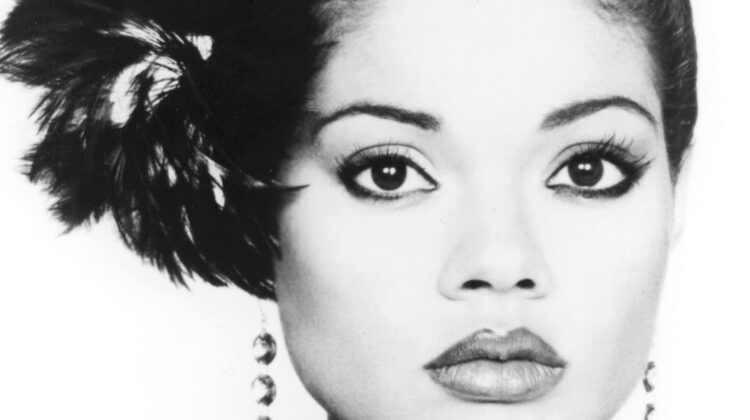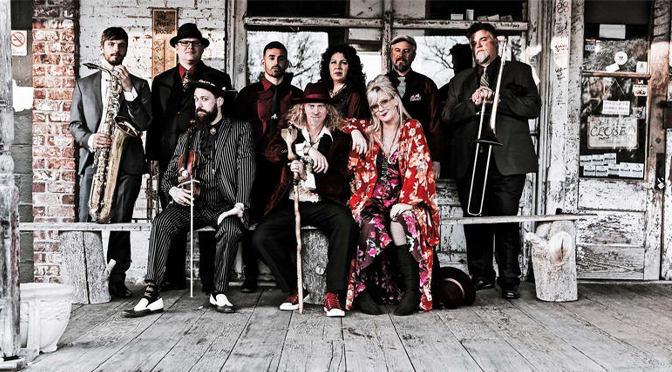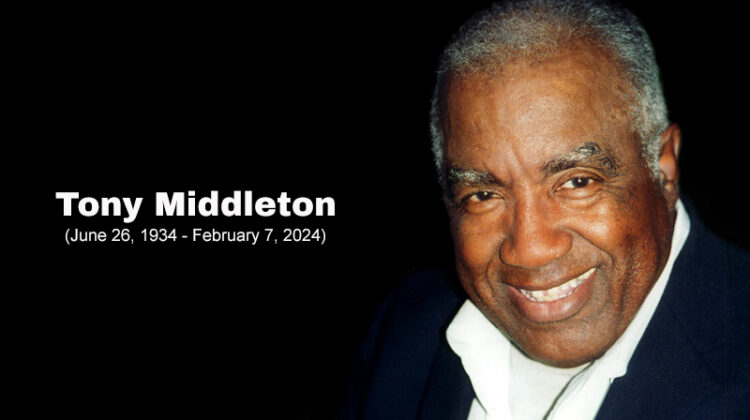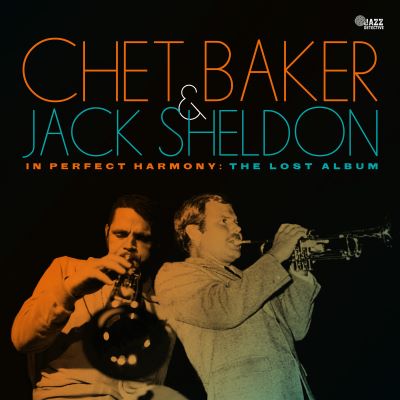Zev Feldman’s reputation preceded him.
When, serendipitously, Frank Marshall found in his garage a fifty-year-old tape recording of Chet Baker and Jack Sheldon, he realized its significance.
Yes, he is the Frank Marshall. The producer of the Indiana Jones movies, the Bourne movies, Schindler’s List, the Back to the Future movies, the Jurassic World movies, and many more.
His father, Jack Marshall, was the guitarist with those trumpeters/vocalists on the studio recording that he produced.
Based upon Feldman’s burgeoning reputation as a “jazz detective” who has been producing a stream of historic jazz recordings, Marshall’s associates suggested that he contact Feldman to produce the lost album.
Of course, Feldman was enthusiastic about this jazz discovery too. He had already produced two Chet Baker albums: Live in Paris: The Radio France Recordings (1983-1984) and Blue Room: The 1989 VARA Studio Sessions in Holland.
Now, In Perfect Harmony: The Lost Album is available in CD and vinyl LP formats.
Little did Frank Marshall know that his find would add to Baker’s discography and fill in gaps in Baker’s biography.
For, in late summer of 1966, Baker suffered a beating on a sidewalk in or near San Francisco. Baker never credibly clarified the date, location, and circumstances of the assault. The details of Baker’s stories kept changing as he recalled the event many times. But there was no doubt that at least one of his teeth was broken, his lip was cut, and that he endured facial and body damage from being struck and kicked.
James Gavin’s biography of Baker, Deep in a Dream: The Long Night of Chet Baker, lists no Baker recordings between 1971 and 1974. Neither does Baker’s web site.
But now a 1972 commercial recording exists.
Sheldon was a lifelong friend of Baker’s. After Sheldon moved from Jacksonville to Los Angeles, trumpeter Uan Rasey introduced one to the other. And Sheldon attended Baker’s funeral. When Bruce Weber was researching for his film about Baker, Let’s Get Lost, Baker provided for interviews the names of only two friends: Ruth Young and Jack Sheldon.
Though Baker and Sheldon shared interests in singing, playing trumpet, and driving fast cars, Sheldon always admired Baker’s natural talent as a trumpet player. In his book Outcats, Francis Davis quotes Sheldon as saying, “It was easy for him. I played the trumpet too, and it was hard for me.” And in Deep in a Dream, Sheldon states: “Chettie was everything I would have liked to have been. He was always in command, so hip, slick, and cool. I was like Forrest Gump. I’d be struggling away at the trumpet.”
As Sheldon noted, everything came easy for Baker. Baker was moody and aloof, sometimes causing discomfort among the people who met him. Sheldon was extroverted and witty, surrounded by smiling friends. Baker squandered his talent due to drug use and erratic behavior, though he continued to record. Sheldon grew to be a Los Angeles studio musician, the sidekick on The Merv Griffin Show, and an actor in his own TV show, Run, Buddy, Run. But perhaps he’ll be best remembered as one of the voices on Schoolhouse Rock!
As an example of the strength of friendship within the jazz community, Sheldon used his sense of humor to convince Baker to come out of isolation to record an album at United Audio in Tustin, a studio co-owned by Jack Marshall, where Baker’s presence wouldn’t be noted by the media or other musicians. When Baker expressed reluctance to record because of the damage to his embouchure, Sheldon turned on the personality, revived Baker’s confidence, and countered that the two trumpeters could split the tracks in half.
Sheldon’s persistence in recording Baker succeeded.
Guitarist Marshall recruited for the session bassist Joe Mondragon, drummer Nick Ceroli, and pianist Dave Frishberg (who wrote Sheldon’s famous recording for Schoolhouse Rock!: “I’m Just a Bill”).
Tragically, Jack Marshall died suddenly before he could interest a record label in releasing the album. And so, the tape of this landmark recording remained undiscovered until recently.
And Sheldon’s idea for relieving Baker’s recording responsibilities worked.
Their styles remained unchanged, each trumpeter true to himself, and as the opposites complemented one other in their musical conversations. As a result, there is no difficulty in distinguishing which trumpeter is performing, so different are their playing and singing.
In addition, the professionalism of the original recording engineer Bob Stone and of CD mastering engineer Matthew Lutthans ensured that there is absolutely no spillover. Sheldon is unmistakably in the left channel, and Baker in the right, as if there were playing from opposite sides of a room.
In Perfect Harmony: The Lost Album opens with “This Can’t Be Love,” which immediately establishes their famous but distinct personalities. Sheldon opens the track with his wry, rubato version of unabashed force and a flatted fifth, while Baker sings the second chorus with mellow appeal accompanied by the rhythm section.
Sometimes, Sheldon seems to take the lead as encouragement to Baker, as he did on his own song, “Too Blue.” Sheldon sings “Too Blue” with verve and drollery over four choruses as Baker interjects subtle fills. At 2:15, Baker emerges to improvise as half of a comfortable colloquy with Sheldon, as if he had been drawn out of his hesitancy. Bassist Mondragon—who participated in Baker’s first Pacific Jazz albums and played the famous bass lines on Peggy Lee’s “Fever”—provides solid support throughout with his walking bass lines, which slow to a ringing timbre at the end of the piece.
Appropriately, the recording includes “Just Friends,” which Baker sings with his melodic, straightforward approach of dusky coolness. Then, Sheldon embellishes the vocal with his bright, outgoing trumpet work, the combination being an indication of their unlikely but firm friendship of mutual understanding.
Frishberg plays the first chorus of “But Not for Me” in a casual stride approach. Baker sings the second chorus in his instantly recognizable sulky but nonetheless fetching legato singing style. The track picks up tempo at 1:32 and becomes a showcase for Sheldon as he lets loose with extroverted joy, the differences between the personalities of the two men evident.
Baker’s noted romanticism comes across when he sings “When I Fall in Love,” and the recognizable poignancy of his approach continues during Baker’s trumpet solo. This track documents the clear importance of this recording, for both Baker’s singing and trumpet playing occur without noticeable deterioration despite his health issues.
Sheldon’s facetiousness comes across during his hard-swinging version of Cy Coleman’s “You Fascinate Me,” which presages his later collaborations with Frishberg (and Bob Dorough) to record humorous songs. Restraints from empathetic melancholy removed, Sheldon delves into the song’s ironic lyrics (“You aggravate me / You irritate me / You fascinate me so”) with his vocal elements of growls, mock yodels, droll vibrato, and rests between phrases to let the words’ meanings to set in.
Irony abounds too within Baker and Sheldon’s version of “I Cried for You.” They abandoned lachrymosity. This fast-paced version of trumpeted call and response provides further evidence of Baker’s physical and musical recovery in the relaxed environment that Marshall and Sheldon established for him. Notably, Sheldon confirms his lyrical release from weeping when, at the end of the song, his singing rises to a shout of his improvised lyrics: “I cried for you / Now baby, what are you gonna do? / You made me feel so bad / You came in / Your hair messed up / And lipstick all over your teeth / Now you’re gonna have to / Cry over me.” (Baker never would have shouted a lyric.)
Both men appreciated the direct emotional appeal of Latin music, whose popularity spread exponentially worldwide from the bossa nova recordings of the early sixties. Baker is in expectedly fine form when he interprets Antônio Carlos Jobim’s “Once I Loved” with expected romanticism, but also with flair and fluid improvisational departures from the melody. “Once I Loved’s” track ends with over a minute of give and take between Baker and Sheldon.
Sheldon sings in Spanish with lovelorn ardor Panamanian composer Carlos Eleta Almarán’s “Historia de un Amor” (“The Story of a Love”), backed by Baker on trumpet. Sheldon’s concluding burnished trumpet solo on that track is a reminder of his underappreciated ability to shape a ballad (Sheldon being the trumpeter soloing on “The Shadow of Your Smile” in the movie, The Sandpiper). Jack Marshall’s acoustic guitar accompaniment adds to the effectiveness of both “Once I Loved” and “Historia de un Amor.”
Not only was the original tape for In Perfect Harmony the lost album which has been found.
It’s also the missing link as a valuable addition to Chet Baker’s discography.
Artist’s Web Site: www.chetbaker.net
Label’s Web Sites: www.elemental-music.com. www.thejazzdetective.com









